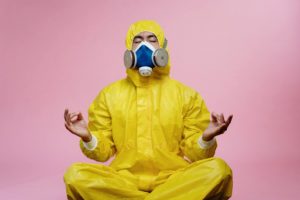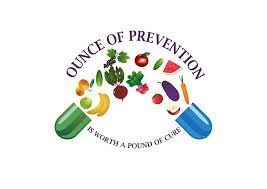We all know people who claim, “I never get sick.” We read stories about workers who never miss a day of work for 40 years. And most Baltimore natives are proud to talk about Cal Ripken, Jr. playing over 2,600 major league baseball games in a row without ever taking a day off for injury or illness. Who are these people, and how do they do it?
Most healthy people have a normal, functioning immune system, but clearly some have more robust immunity to illness than others. A portion of this is luck of the draw- we are born with an innate level of immunity that can determine how often we get sick. But this is only part of the picture. One study in 2015 followed 105 twin pairs to see how well they responded to the flu vaccine. They found that the response differed by about 75% between twins, and was more pronounced in older pairs. This implies that most of our immunity comes from our environment and actions, which change over time, not from our genes. Other studies back this up.
So what are these actions we can take to improve our immunity? Most of them are not surprising- moderate exercise, adequate sleep, and a healthy diet all contribute to a healthy immune system. But there are some other actions you can take as well that might keep you away from the Kleenex box, or, more importantly, out of the hospital.
importantly, out of the hospital.
A relatively simple action is getting immunizations– “immunity” is in the name! There’s been an anti-vaccine push recently, even before the COVID vaccines, but this is partly because vaccines are so successful that a lot of the diseases associated with vaccines, such as polio and smallpox, have been virtually eradicated, so people don’t recognize the importance of vaccines any more. Also, many people lump vaccines into the “drug” category, but this isn’t the case. Finally, discredited negative research about vaccines has been propagated, which creates distrust. This has only gotten worse with the COVID vaccines.
Vaccines are basically practice for your immune system. A vaccine presents an inactive version of an infection to your body so your immune system can recognize it and build antibodies to fight it off if it ever presents itself again. It’s a natural and successful process. And there’s recent evidence that vaccines to certain microbes can actually help boost your immunity to other, unrelated infections, including COVID.
Another way to improve our immune system is to prevent inhibiting it. Your immune system is a complex system, and one we don’t fully understand. If you remain healthy, through a good diet, exercise, and sleep habits, your immune system should remain healthy. However, any insult to your body can result in lowered immunity to infection. One clear example is alcohol. Excessive alcohol intake, even for one night, has been shown to significantly increase your risk of infection. Alcohol impairs sleep, damages immune cells in your lungs and GI tract, and alters your gut flora, all of which increase both the risk and severity of infections. Smoking is even worse.
Stress also plays a large role. We know stress lowers your immunity to infection, but we don’t know exactly why. One reason is likely indirect causes- when you are stressed, you don’t eat as well, you don’t exercise as much, and it likely impairs your sleep.
There are also direct effects from stress that we don’t fully understand. These effects are hard to measure because stress is a subjective term. Your “stress” is an internal response to external stressors, and is different for everyone. You may not be able to control your environment, you can lower its impact on your immune system by controlling how you respond. Meditation and other mental fitness exercises such as mindfulness can help with this, along with the typical standbys: a good diet, moderate exercise, adequate sleep, and limited alcohol.
What about supplements? We’ve all been bombarded by ads touting the immune benefits of many different supplements, but do any of them work? Probably not. There’s no solid evidence that any supplement can help improve the immune system. There’s some soft evidence that garlic can help, and theoretically probiotics may ward off GI infections, but neither of these has been definitively proven. At the same time, there’s little risk to these, so feel free to give them a try if you want.
And finally, you can’t get sick if you don’t get exposed. Regular hand washing can prevent 25% of diarrhea and respiratory infections. And taking routine COVID-19 precautions, including wearing a mask and physical distancing, will be more important than ever as we go into the winter months. These same precautions will also reduce the risk of influenza.
So, while there’s no magic bullet to boosting your immune system, there are steps you can take that can both reduce your risk of infection, and the severity of illness. The more you do, the healthier you will be and feel. Who wouldn’t want that?
Good luck, good health, and stay safe!
Ken Zweig, M.D.
Northern Virginia Family Practice

